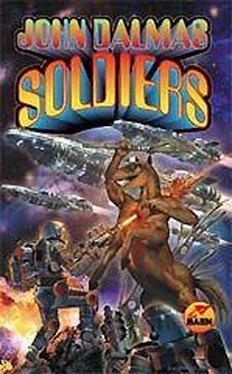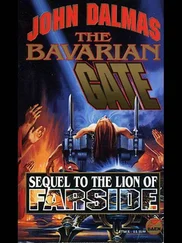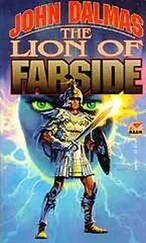John Dalmas - Soldiers
Здесь есть возможность читать онлайн «John Dalmas - Soldiers» весь текст электронной книги совершенно бесплатно (целиком полную версию без сокращений). В некоторых случаях можно слушать аудио, скачать через торрент в формате fb2 и присутствует краткое содержание. Жанр: Космическая фантастика, на английском языке. Описание произведения, (предисловие) а так же отзывы посетителей доступны на портале библиотеки ЛибКат.
- Название:Soldiers
- Автор:
- Жанр:
- Год:неизвестен
- ISBN:нет данных
- Рейтинг книги:3 / 5. Голосов: 1
-
Избранное:Добавить в избранное
- Отзывы:
-
Ваша оценка:
- 60
- 1
- 2
- 3
- 4
- 5
Soldiers: краткое содержание, описание и аннотация
Предлагаем к чтению аннотацию, описание, краткое содержание или предисловие (зависит от того, что написал сам автор книги «Soldiers»). Если вы не нашли необходимую информацию о книге — напишите в комментариях, мы постараемся отыскать её.
Soldiers — читать онлайн бесплатно полную книгу (весь текст) целиком
Ниже представлен текст книги, разбитый по страницам. Система сохранения места последней прочитанной страницы, позволяет с удобством читать онлайн бесплатно книгу «Soldiers», без необходимости каждый раз заново искать на чём Вы остановились. Поставьте закладку, и сможете в любой момент перейти на страницу, на которой закончили чтение.
Интервал:
Закладка:
Frowning, Chang said: "We were told by-another source that both sexes nurse the young."
"That requires clarification. We have only one parent gender. Each adult of the parent gender alternates between male and female sexual phases, and only the parent who carried the child nurses it. But the nonsexual nanny gender, which is larger, will also nurse any unweaned young in its care."
"You told us the matron gender nurses selected young."
"In a sense. But what the matrons produce is not what you might call `milk.' They provide something quite different, and in smaller quantities."
"Seven genders," Tischendorf mused. "What percentage are warriors?"
David had asked the same question while they'd waited aboard the scout, to be picked up, so Qonits recognized Tischendorf's problem. "About twelve percent," Qonits said, "but the parent gender, and the nannies and artisans are also trained to fight. Masters, as exalted warriors, are physically the largest and most powerful, and well able to fight. But they are seldom called upon to physically participate in combat. Their command powers, and sense of responsibility, are too valuable."
The admiral regarded the information thoughtfully. "And only the parent gender has sexual intercourse?"
"Only the parent gender is appropriately equipped and hormonally inclined."
"What is the difference between a warrior and a-parent in uniform? On the battlefield that is?"
"Warriors are larger and stronger, and have more appropriate reactions. In fact, they are bolder and more aggressive in all matters, and in war, more ready to put their lives in danger. In peacetime, warriors both accept and seek responsibility more than any other gender excepting masters. In the military, the great majority of commissioned officers are warriors, but they do not attain the higher ranks. All elite units are made up of warriors."
Tischendorf nodded thoughtfully. "So then, all-citizens?-are trained as soldiers?"
"All but matrons. Matrons have seriously limited intelligence. Also they are very precious to the species, unique and uncommon. All the exalted genders are; nurturing a newborn for exalted status commonly results in the infant's death. We have a saying, half serious: `Death by deranged morphogenesis is God's way of helping us appreciate the occasional success.' "
David wondered how such an odd system had ever evolved. And Qonits had mentioned God. Had he said it to mislead them, or was the proverb genuine?
"That is why," Qonits continued, "the exalted genders are exposed to actual combat no more than necessary. But matrons are especially precious. A warrior is most fierce when protecting a matron."
He bowed then, and the president reclaimed the floor. "Tell us about scholars, Mr. Ambassador."
"Ah, scholars. I have slighted my own kind, have I not? Scholars are exalted artisans. The artisan genotype in general absorbs information more easily than other genotypes. And artisans tend to apply information in practical ways. Scholars excel artisans in their affinity for information, but are less focused on its practical applications. Also we look more deeply, and analyze with greater facility."
He displayed what David knew was a grimace. "Unfortunately those strengths are not always accompanied by wisdom. They can give rise to overconfidence and vanity." He paused. "And it is a scholar weakness to become so engrossed in some area of interest-learning your language, for example-that we lose track of relative importances."
Chang regarded Qonits for a long moment. "Thank you, Mr. Ambassador," he said. "You've been very enlightening."
Chang led his de facto council through two additional rounds before he and his prime minister thanked and dismissed them. The last thing he said was that he would consult next with Charley Gordon, then perhaps talk further with them.
Leaving the council room, David felt relief at the direction the meeting had taken. For despite the death of Yukiko, he did not want the Wyzhnyny eradicated. Qonits, who had become his friend, was a Wyzhnyny. Also he remembered the pastry chef on the Meadowlands, who out of goodness of heart had been friendly to him and Yukiko and Annika. And who now was dead.
After lunch in their suite, Qonits napped, while David sat in one of the small roof gardens and read the Kunming Daily Reporter in detail. Later, Qonits also came up, accompanied by Lance Corporal Shaughnessy, who removed himself a dozen yards, as if to give them privacy. Nonetheless, David supposed the marine was bugged-surely something was-and that everything they might say would be recorded.
"Tell me about Wyzhnyny history," he said to Qonits. "Not the details, but the broad features."
"The broad features? That is feasible, yes. I will begin at the beginning." Qonits also believed they were being recorded, and that David was leading him. Nonetheless he talked frankly, almost till supper.
Via Ramesh, the president and prime minister tried to consult with Charley Gordon after lunch. Admiral Soong, however, asked that they postpone it a couple of hours. Charley was still sleeping off the nervous exhaustion of the long battle. And the colonization fleet showed no sign of leaving. There was constant warp radio traffic between Wyzhnyny ships, but while no one on the Altai had any idea of what was being discussed, it sounded desultory, rather than intense.
Chang and Peixoto gave him half an hour, then eavesdropped on the ambassador and David MacDonald, gaining useful insights.
Forty minutes later they called the Altai again, and counseled with Charley, and Alvaro Soong. When the armada had arrived in the system, Charley told them, the colonization fleet had obviously been ordered to park where they were, and wait. But they wouldn't wait forever. Their commanders were surely aware that their warfleet had been destroyed. His impression was, they'd been discussing the dangers of fleeing-of being dispersed and isolated, with the separate units lacking adequate technical-industrial equipment for long-range survival. Along with the probability that many would be torpedoed when they booted their drives. They were aware that a human fleet was standing by, also in warpspace, with target locks on Wyzhnyny ships. And that survivors would almost certainly be hunted by the humans.
But they wouldn't wait forever. Unless something intervened soon, they'd leave, unless a peace proposal changed their minds.
An hour's discussion resulted in a plan. Half an hour later, Qonits, using a bottled savant in Cee Ministry, sent the basic features of an offer via Charley himself, who forwarded it using the Wyzhnyny command frequency. The vocators of the bottled savants provided a much better approximation of Qonits' Wyzhnynyc speech than any human vocal apparatus could.
The Wyzhnyny commanders could expect an "imperial" ambassador in two Wyzhnyny shipsweeks, to confer with them directly. Qonits would leave in a cruiser the next day, with David as his companion.
Chapter 64
Unfinished Business
Months had passed since the Wyzhnyny offensive on New Jerusalem had been broken. The Burger engineers had worked diligently, transforming the army's base from a tent camp to prefabs, electrified for heat and light. The battalion officer's dayroom had a wooden frame and a subfloor of newly-sawn planks, provided by the Burgers' portable sawmill. Walls, ceiling, roof, and the floor itself were sheets of Plastosil brought from Pastor Luneburger's World with the army.
The New Jerusalem Liberation Corps was ready for winter.
Which soon would be there. It was early ElevenMonth by the Jerrie calendar-dark, cold and wet-when Ensign Esau Wesley came in after supper. He'd brought his platoon back from patrol an hour and a half earlier, had cleaned up and eaten, then come to the dayroom to read. He'd never been much for loafing, and over the months had read, then reread the books Captain Zenawi had loaned him. He found them engrossing, full of facts and ideas-even wisdom-useful to a leader.
Читать дальшеИнтервал:
Закладка:
Похожие книги на «Soldiers»
Представляем Вашему вниманию похожие книги на «Soldiers» списком для выбора. Мы отобрали схожую по названию и смыслу литературу в надежде предоставить читателям больше вариантов отыскать новые, интересные, ещё непрочитанные произведения.
Обсуждение, отзывы о книге «Soldiers» и просто собственные мнения читателей. Оставьте ваши комментарии, напишите, что Вы думаете о произведении, его смысле или главных героях. Укажите что конкретно понравилось, а что нет, и почему Вы так считаете.








